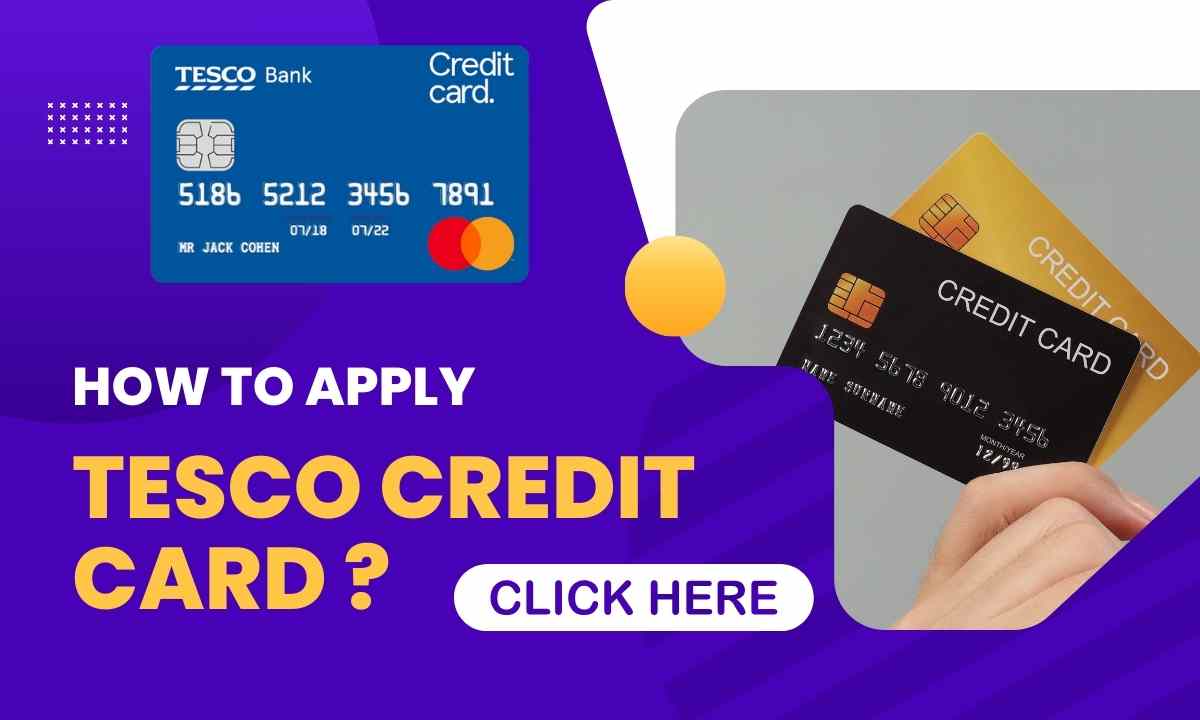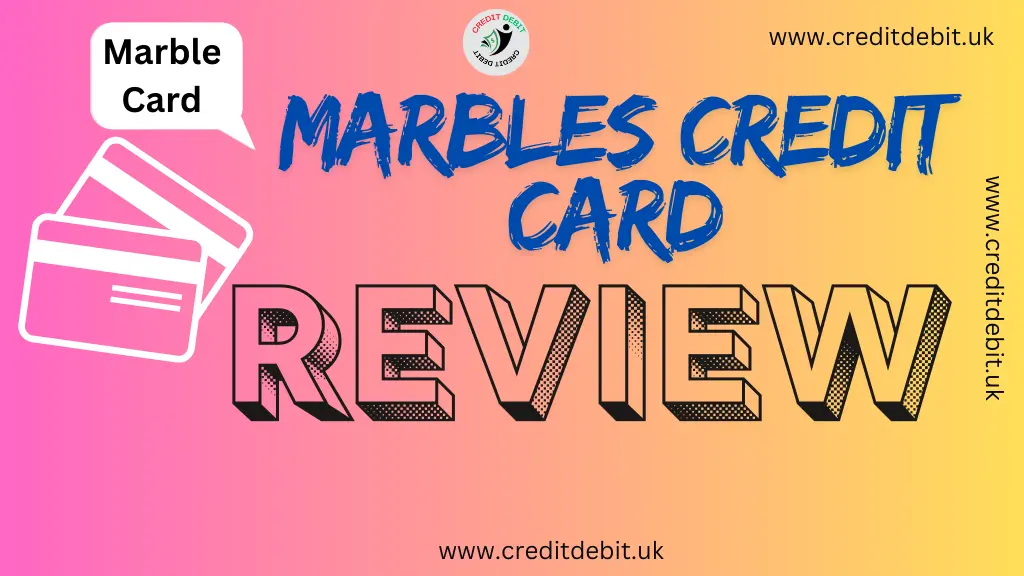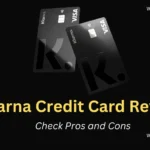In today’s fast-paced world, having a credit card isn’t just about convenience. It’s a tool for building your financial future. As a person living in the UK, whether you are stepping into the world of credit for the first time or looking for a card that better suits your lifestyle.
This review guide is for you. We will break down everything from Checking your eligibility to choosing the perfect card that matches your needs and spending habits. Ready to take control of your finances? Let’s move on to the article further.
Understanding Credit Cards and its working

Before applying for a credit card, it’s essential to understand how it works and the benefits it offers. A credit card allows you to borrow money from the issuer and pay it later. You repay the borrowed amount at a time or through monthly instalments with interest if applicable.
Benefits of Having a Credit Card
- Convenience – Credit cards are accepted almost everywhere, making it a convenient way to pay for goods and services.
- Credit Building -Responsible use of a credit card helps you to build a credit score, making it easier to obtain loans or mortgages in the future.
- Rewards and Perks – Many credit cards offer rewards such as cashback, travel points, or discounts on specific purchases.
- Security – Credit cards provide additional protection against fraud compared to debit cards.
Check Your Eligibility for a Credit Card?
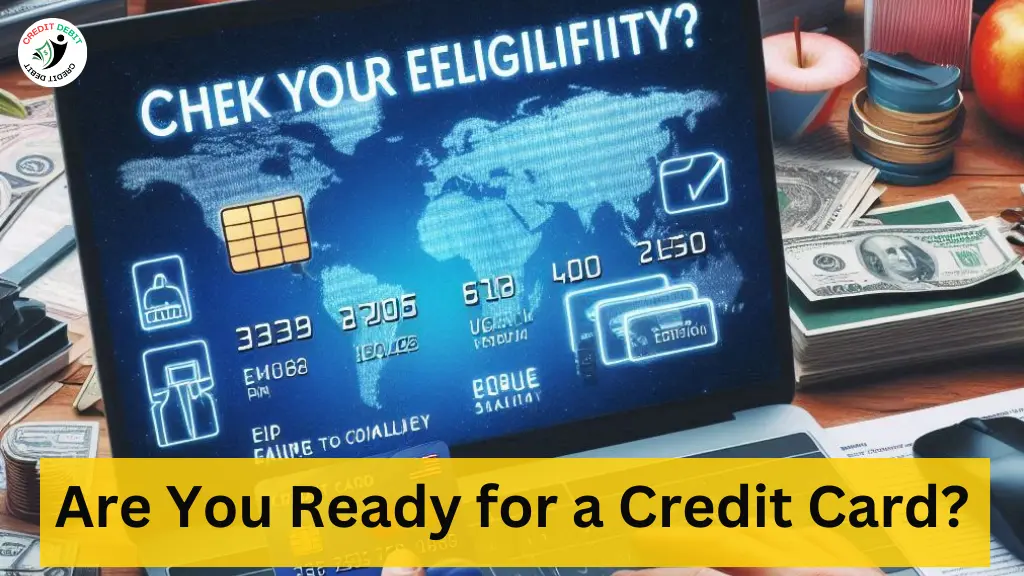
It is always recommended that you check your eligibility before applying for the card to increase your chances of approval.
Credit card providers consider several factors when evaluating your applications. Here are some of the essential points you must consider:-
Credit Score
Your credit score is a significant factor in determining your eligibility for a credit card. In the UK, credit scores range from 0 to 999, with higher scores indicating better creditworthiness. A score above 700 is generally considered good.
Income
Credit card issuers require proof of your income source to ensure you can repay the borrowed amount. This includes your salary, benefits, or any other regular income sources.
Employment Status
While full-time employment increases your chances of approval, part-time workers, self-employed individuals, and students can apply for credit cards provided they meet other criteria.
Existing Debts
If you already have a significant amount of outstanding debts, lenders may be hesitant to approve your application. Managing existing debts effectively before applying for a new credit card is essential.
Age
You must be at least 18 years old to apply for a credit card in the UK.
Residence Status
Permanent residents and citizens of the UK can apply for credit cards. International students and expatriates may also qualify but face additional requirements or restrictions.
Selecting Right Credit Card that Suits Your Needs?

With numerous credit cards available in the UK, choosing the right one can be a difficult task. Here are some points that will take you to make your decision:-
Types of Credit Cards
Standard Credit Cards
This card is ideal for everyday use, offering basic features without charging you annual fees.
Reward Credit Cards
These cards Provide cashback, points, or miles for every pound spent. Suitable for those who frequently use their card.
Balance Transfer Cards
These allow you to transfer existing debt from another credit card at a lower interest rate, helping you save interest.
Student Credit Cards
These are designed for students with limited credit history, offering lower credit limits and basic features.
Secured Credit Cards
Designed for individuals with poor or no credit history, requiring a security deposit.
Factors to Consider When Choosing a Credit Card
Interest Rates (APR)
Compare APRs across different cards to find the lowest rate, especially if you plan to carry a balance.
Fees
Look for cards with no annual fees and low foreign transaction fees if you travel frequently.
Rewards and Perks
Choose a card with rewards or benefits that align with your spending habits.
Introductory Offers
Some cards offer 0% interest on purchases or balance transfers for an introductory period. Consider these offers if you plan to make significant purchases or consolidate debt. Examples of Popular UK Credit Cards
Prepare Your Application Before Applying

Once you have chosen the right credit card, it’s time to prepare your application. Here are some of the documents you will require:-
Personal Information
- Name -Ensure your name is the same as that of your official documents.
- Address -Provide your current UK address and details of any previous addresses from the last three years.
- Date of Birth – You must be at least 18 years old or above.
- Nationality -Indicate if you are a UK citizen or a permanent resident.
Financial Information
- Employment Status -You must mention your employee type, such as full-time, part-time, self-employed, or student.
- Income Details – Provide correct information about your income source, like salary benefits or other income sources.
- Existing Debts -Include any loans, mortgages, or other credit cards you had.
Proof of Identity and Address
- ID Document: Passport, driving license, or other government-issued ID.
- Proof of Address: Utility bill, bank statement, or council tax bill dated within the last three months.
Bank Account Details
- Bank Account Number: Required for setting up direct debits for repayments.
- Sort Code: Your bank’s sort code for processing payments.
Credit History
Your credit score is essential to getting approval quickly. Some lenders may also request you submit your full credit report. You can get credit reports from agencies like Experian, Equifax, or TransUnion.
Step by Step Process to Apply for Credit Card

Applying for a credit card in the UK is not a big task if you follow the steps carefully. Follow these steps to complete your application successfully:-
Compare Credit Cards
Use comparison websites or visit the official websites of credit card providers to compare different cards based on interest rates, fees, and benefits.
Check Eligibility
Many credit card providers offer an eligibility checker on their website before applying. This tool allows you to see your chances of approval without affecting your credit score.
Gather Required Documents
Ensure you have all the necessary documents and information, including ID, proof of address, and financial details.
Complete the Online Application
Most credit card applications are done online. Visit the official website of the credit card company and fill out the application form with your personal, financial, and employment details.
Submit Your Application
Review the information carefully once you have completed the form and apply. You will receive a decision within minutes for some providers and wait for 2 days for another provider.
Wait for Approval
If approved, you will receive your credit card by post within 7-10 working days. Sometimes, you may be required to provide additional documents or verification.
Activate Your Card
Once you receive your credit card by post, you must activate it before using it. Activation is a simple process and can usually be done online, by phone, or through your bank’s mobile app. Here’s how to activate your card:
How to activate credit card?
There are multiple ways to activate your credit card. You can visit official website, Phone activation by dialling the activation number or use mobile app at your convenience:-
- Visit the official Website – Visit official website of the card provider and Log in to your online banking account.
- Locate the Activation Section – Look for an option like “Activate Credit Card” in the menu.
- Enter Card Details – You will required to enter the card number, expiration date, and security code (CVV).
- Confirm Activation – Follow the on screen instructions to confirm activation. You should receive a confirmation message once the card is active.
How to activate credit card by mobile Phone
- Call the Activation Number -The number will be provided with your card or on a sticker attached to the card.
- Follow the Automated Instructions -You will need to enter your card number and other identifying information using your phone’s keypad.
- Speak to a Representative (if needed) – Sometimes, you may be transferred to a customer service representative to complete the activation.
- Receive Confirmation – Once activated, you can start using your card immediately.
How to activate Credit Card by Mobile App
- Open the Bank’s Mobile App – Log in to your account.
- Find the Activation Option – Navigate to the section where you manage your credit cards.
- Enter Card Details – Input the necessary information, such as the card number and CVV.
- Confirm Activation – Follow any additional instructions to complete the activation process.
Best Practices to Use Your Credit Card Responsibly
Once your credit card is activated, it is essential to use it responsibly to avoid debt and maintain a good credit score. Here are some pro tips to you can consider:-
Pay Your Balance in Full
If you have an outstanding amount, try to clear your credit card balance in full each month. This helps you avoid interest charges and positively impacts your credit score.
Make Payments on Time
Always make at least the minimum payment by the due date to avoid late fees and penalties. Setting up a direct debit for the minimum payment can help ensure you never miss a payment.
Keep Your Credit Utilization Low
Credit utilization refers to the percentage of your credit limit that you use. You should keep your utilization below 30% to maintain a healthy credit score. For example, if your credit limit is £1,000, try to keep your balance below £300.
Monitor Your Statements
Regularly review your credit card statements to track spending and identify unauthorized transactions. If you notice any suspicious activity, immediately report it to your card provider.
Avoid Cash Withdrawals
Using your credit card to withdraw cash from an ATM, known as a cash advance, often charges high fees and interest rates. It is better to avoid cash advances unless necessary.
Tips to Improving Your Credit Score
Your credit score plays a vital role in your finances, affecting your ability to obtain loans, mortgages, and even specific jobs. Here are some tips to improve your credit score:-
Check Your Credit Report Regularly
In the UK, you can obtain your credit report for free from agencies like Experian, Equifax, or TransUnion.Reviewing your report frequently allows you to spot errors or inaccuracies that could negatively affect your score.
Pay Off Debts Strategically
If you have multiple credit cards or loans, prioritize paying off high-interest debt first. Consider using the snowball method (paying off the smallest debt first) or the avalanche method (paying off the debt with the highest interest rate first) to manage and reduce your overall debt.
Limit New Credit Applications
Every time you apply for a credit card, a hard inquiry is made on your credit report, which can temporarily lower your score. Avoid applying for multiple credit cards or loans within a short period.
Maintain a Mix of Credit Types
A diverse mix of credit types (e.g., credit cards, loans, mortgages) can positively impact your credit score. However, only take on new credit if capable of managing it properly.
Keep Old Credit Accounts Open
The length of your credit history is essential to your credit score. Keeping older accounts open can boost your score even if you no longer use them.
Avoid Closing Credit Cards Suddenly
Closing a credit card account reduces your overall available credit, which can increase your credit utilization ratio and negatively affect your credit score. If you want to close your account, consider paying off the balance and gradually reducing usage before closing it.
Set Up Payment Reminders
If you struggle to remember payment due dates, set up reminders through your bank’s app or use calendar alerts on your phone. Staying on top of your payments is one of the most effective ways to maintain a good credit score.
What to do if your application is rejected?
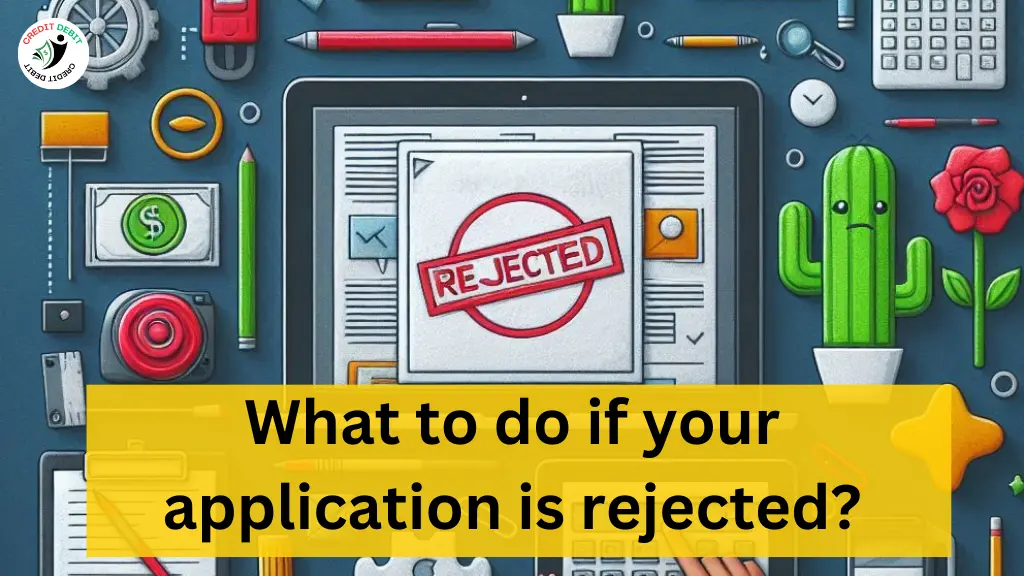
When you apply for a credit card and receive the notification that your application is rejected, it can be very disappointing. But this is not the end.
Here are some advanced tips on how to improve your chances of approval in the future:-
Understand the Reason for Rejection
Along with the rejection message, you must have received the reason for rejection. Common reasons include a low credit score, insufficient income, or existing debt. Fix your reason for rejection and apply it again.
Check Your Credit Report
If your credit score was a factor in the rejection, review your credit report to identify any areas for improvement. High credit utilization or missed payments may be the reason.
Consider a Different Card
If your application is rejected by a standard credit card, consider applying for a secured credit card or with limited credit history. These cards have more lenient approval criteria and can help you build or rebuild your credit score.
Wait Before Reapplying
Avoid applying for another credit card immediately after a rejection. Multiple applications in a short period can negatively impact your credit score. Instead, wait a few months, work on improving your creditworthiness, and then apply for a card that matches your financial situation.
Seek Professional Advice
If you’re unsure why your application was denied or how to improve your credit, consider seeking advice from a financial advisor or credit counsellor. They can provide personalized guidance to help you achieve your desired credit card.
Conclusion
In this article, I have tried to cover everything you need to know to secure your credit card from benefits to the rejection.By applying the methods shared in this blog helps you to fix the rejection issue as well.
After getting a credit card, how you manage it is important to improve your credit score. Using credit cards irresponsibly and not paying the due on time can negatively impact your credit history. So always manage your credit card widely.
I hope I have cleared all your doubts about getting a credit card. Now, it’s in your hands how you use the above information for your benefit. If you have any questions, write in the comment section, and if this article provides value in your life, do share it with your friends.
Is a credit card the same as a debit card?
No, a credit card is not the same as a debit card.
Can I get a credit card with no credit history?
Getting a credit card with no credit history is challenging but not impossible.
What is the minimum income required to get a credit card in the UK?
There is no fixed minimum income required. It depends on the provider and card type.
How can I improve my chances of credit card approval?
To improve your chances of approval, maintain a good credit score, and only apply for cards that match your credit profile
What is the minimum age to apply for a credit card in the UK?
To apply for a credit card in the UK, you must be at least 18 years old.
What are the common fees associated with credit cards?
Common fees include annual fees, late payment fees, and balance transfer fees
How do I report a lost or stolen credit card?
Contact your credit card issuer immediately to report a lost or stolen card.
Hello, I’m Emily Hart, a finance writer focused on UK personal finance and consumer credit. I research and review UK credit cards, loans, and financial products to help readers understand their options and make informed decisions. My work is grounded in careful analysis of product features, terms, and publicly available information, with the goal of presenting complex financial topics in a clear and practical way
